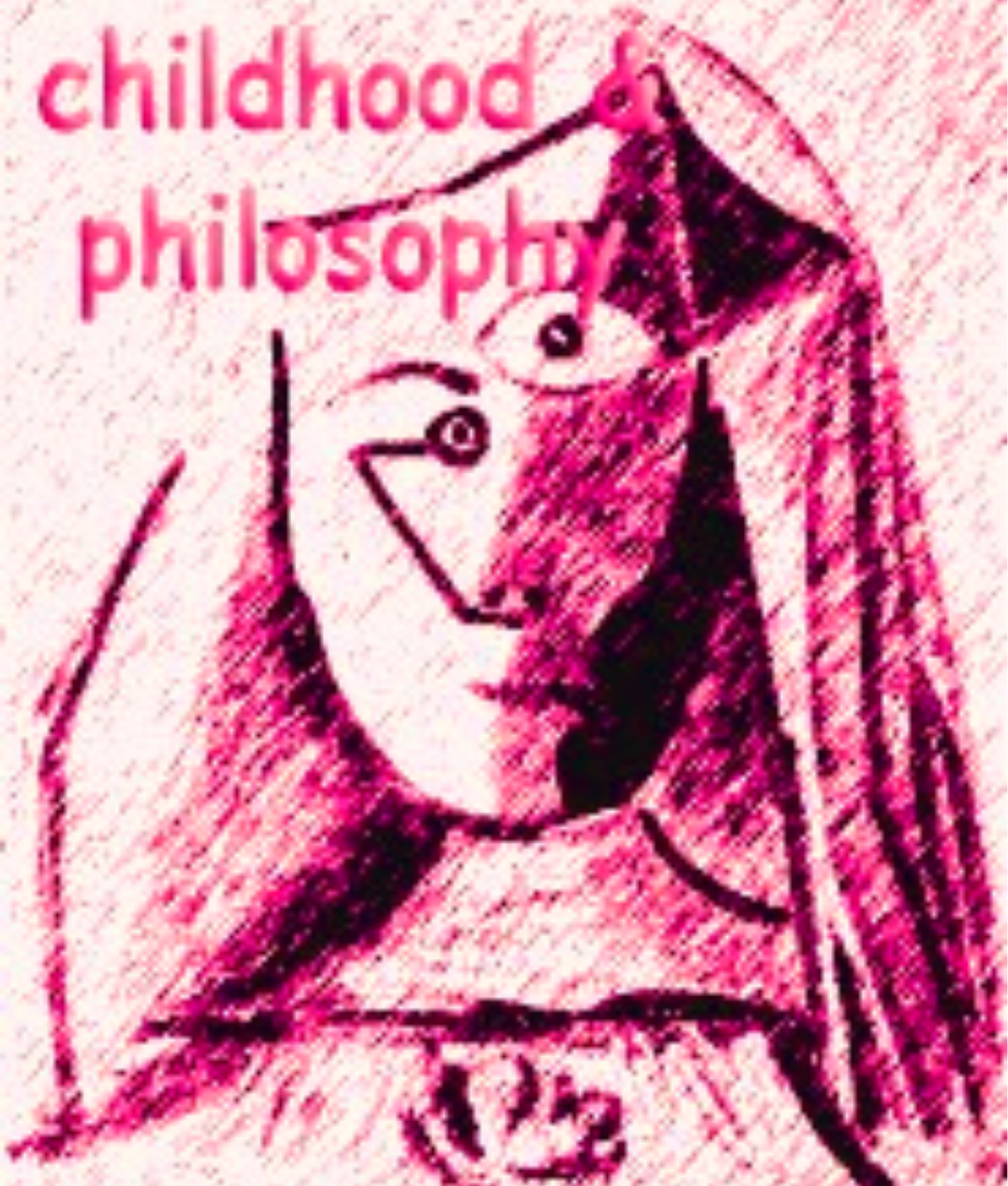is the voice we hear on the inside the same as the one people hear on the outside?
DOI:
https://doi.org/10.12957/childphilo.2022.65690Keywords:
voice, listening, sharing, community of philosophical inquiry.Abstract
This text was written after hearing a childlike question about voice, a question asked by Lara, a girl at a “basic” school in a rural area of the Azores islands that resulted in a diferent way of understanding the motives and intentions that are implicit in the way we practice community of philosphical inquiry with children and adults. This question also unveiled important aspects of the way we construct ourselves as adults who believe in the importance of teaching philosophy in elementary school. This text describes an attempt to follow the trail of inquiry triggered by Lara’s question, and documents three moments or possibilities of re-questioning. These moments – which are not understood as forming an orderly sequence, but rather represent inroads into the initial question – emerge as possibilities marked by the rhythm of inquiry that followed. Those questions were: What do we hear when we talk about voice? What do we say when we talk about listening? And what do we think about when we share voices and listen actively? The text invites us to focus on voice as a concept aligned with a certain paradigmatic model of thinking commonly referred to as “philosophy,”and also invites us to consider the concept of listening as a construct that returns us to the origins of western philosophy. Finally, the text invites us to consider different ways of understanding voice and listening as based on the idea of thinking as an in-between space of sharing, focusing specifically on activities centering philosophical dialogue with children.
Downloads
References
Aristóteles (1994). Metafísica. Madrid: Editorial Gredos.
Aristóteles (1998). Política. Lisboa: Vega.
Bergson, H. (2013). Introduction à la Métaphysique. Paris: Presses Universitaires de France.
Biesta, G. (1994). Education as practical intersubjectivity: towards a critical-pragmatic understanding of education. Educational Theory. 44 (3), pp. 299-320.
Calvino, I. (1995). Sob o Sol-Jaguar. S. Paulo: Companhia das Letras.
Camps, Maria da Conceição (2009). As teorias da visão no ocidente medieval até ao século XII.
O Comentário de Calcídio ao Timeu de Platão e As Questões Naturais de Adelardo de Bath. Philosophica, (34) pp. 231-243
Cavarero, A. (2005). For more than one voice. Toward a philosophy of vocal expression. Stanford: Stanford University Press.
Deleuze, G. (1988). Abécédaire. G como Gauche. In https://www.youtube.com/watch?v=c2r-HjICFJM (acedido a 14 de fevereiro de 2022)
Derrida, J. (1991). Margens da Filosofia. Campinas: Papirus.
Gomes, V. D.; Vieira, P. A. (2021). a que convida o convite ao filosofar?. childhood&philosophy, 17, pp. 1-28.
Haynes, J.; Murris, J. (2012). Escuta, hospitalidade e ensino filosófico. In Filosofar: aprender, ensinar, org. Ingrid Müller Xavier e Walter Omar Kohan, Belo Horizonte: Autêntica Editora, pp. 173-187.
Jonas, H. (2004). O princípio vida: fundamentos para uma biologia filosófica. Rio de Janeiro: Vozes.
Kennedy, D. (1999). Philosophy for Children and the Reconstruction of Philosophy, Metaphilosophy, 39 (4), pp. 338-359.
Kennedy, N.; Kennedy, D. (2012). “Community of Philosophical Inquiry as a Discursive Structure and its Role in School Curriculum Design”, in Philosophy for Children in Transition. Problems and Prospects, ed. N. Vansieleghem e D. Kennedy, Wiley-Blackwell, Oxford, pp. 97-116.
Kohan, W. (2002). Entre Deleuze e a Educação: notas para uma política do pensamento. Educação e Realidade, 27 (2), pp. 123-130.
Kohan, W. (2021). Paulo Freire: um menino de 100 anos. Rio de Janeiro: NEFI Edições.
Lopéz, M. (2006). “Filosofía com niños”: cronica de uma feliz confusión em torno del concepto de experiencia. In W. Kohan (org.), Teoria y prática em filosofia com niños y jóvenes: Experimentar el pensar, pensar la experiencia. Buenos Aires: Ediciones Novedades Educativas, pp. 25-32.
Machado, J. P. (2003). Dicionário Etimológico da Língua Portuguesa. vol. 5. Lisboa: Livros Horizonte.
Maybin, J. (2006). Children’s Voices. Talk, Knowledge and Identity. New York: Palgrave Macmillan.
Murris, K. (2003). The Epistemic Challenge of Hearing Child’s voice”. Stud. Philos. Educ., 32 (3), pp. 245-259.
Nancy, J.-L. (2002). À l’écoute. Paris: Éditions Galilée.
Nancy, J.-L. (1982). Le partage des voix. Paris: Éditions Galilée.
Platão. (2015). Teeteto. Lisboa: Fundação Gulbenkian.
Platão. (2011). Timeu. Coimbra: Centro de Estudos Clássicos e Humanísticos.
Santos, A. I.; Costa Carvalho, M. (2017). não deve dar a palavra aos amigos... assim não é justo!
representações das crianças sobre o gestor da palavra na comunidade de investigação filosófica, 13 (27), pp. 369-391.
Santos, A. et al. (2022). Filosofâncias de uma escola que junta a filosofia e as crianças: brincolandiamos?, in (a)riscar-se na filosofia, (a)colhendo infâncias: encontros com Gabriela Castro, coord. Magda Costa Carvalho e Paula Alexandra Vieira. Ponta Delgada: Letras Lavadas edições, pp. 315-328.
Snell, B. (1953). The discovery of the mind. The Greek Origins of European Thought. Cambridge: Harvard University Press.



